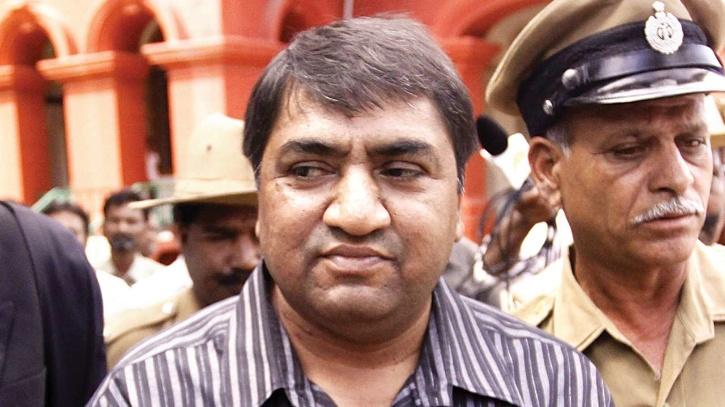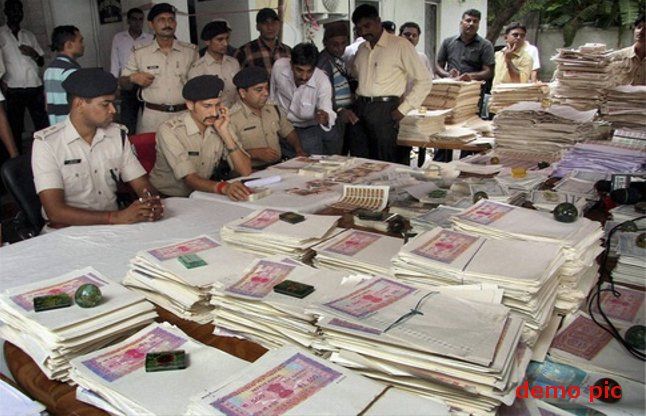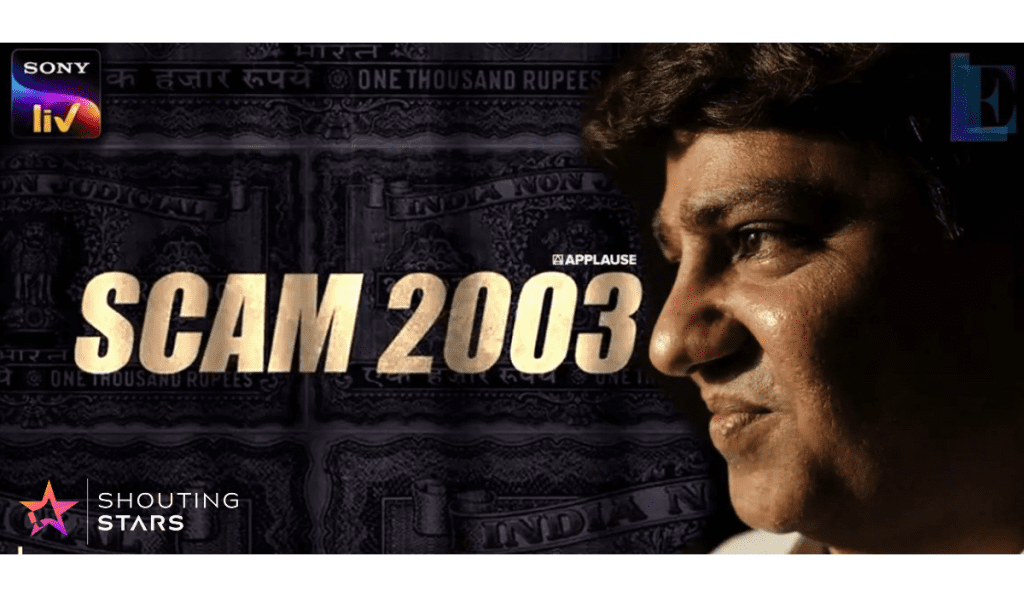Following the immense triumph of the financial scam web series, Scam 1992, which chronicled the exploits of Harshad Mehta, acclaimed Indian filmmaker Hansal Mehta is back in action with yet another enthralling financial scam saga, Scam 2003. This new series centres around the life of Abdul Kumar Telgi, the mastermind behind the audacious 30,000 crore stamp paper scandal of 2003.
The excitement reached a fever pitch on Saturday as the teaser for Scam 2003, co-directed by Hansal Mehta and Tushar Hiranandani, was unveiled. Set to grace screens on SonyLiv starting September 2, 2023, fans of Scam 1992 are eagerly anticipating another thrilling ride from the creative genius, Hansal Mehta.
Scam 1992, which made its debut in 2020, transformed the landscape of Indian television. It ingeniously interwoven the riveting tale of a brilliant financial deception with the inspiring ascent of Indian stockbroker Harshad Mehta, culminating in a dramatic downfall.
Scam 1992, comprising ten episodes ranging from 40 to 60 minutes each, was accompanied by the captivating musical compositions of Achint Thakkar. The series artfully showcased the opulent lifestyle of Harshad Mehta, introducing Indian audiences to an entirely novel television experience deeply rooted in Indian narratives.
With the advent of Scam 2003, anticipation is soaring for a sequel that promises to deliver the same verve, storytelling finesse, cinematic prowess, and undoubtedly, a chart-topping soundtrack. This new instalment will witness seasoned theatre luminary Gagan Dev Riar portraying Telgi, while the charismatic Manoj Bajpayee takes on the role of the narrator. Anup Soni, on the other hand, will portray a tenacious CBI officer.
Drawing inspiration from journalist Sanjay Singh’s Hindi book ‘Reporter ki Diary’, Scam 2003 takes us into the heart of a multi-crore swindle. Telgi, orchestrating an ingenious ruse, flooded the market with counterfeit stamp papers, generating a fabricated shortage and amassing colossal profits from governmental and non-governmental entities alike. As history unravels on screen, viewers are set to be enthralled by this captivating narrative of audacious deceit and its far-reaching consequences.
Now we will go into detail about the premise of Scam 2003 and all we know about it so far
Abdul Karim Telgi: The Mastermind Behind India’s Stamp Paper Scam
In the annals of India’s criminal history, the name Abdul Karim Telgi stands out as a symbol of audacious deceit and financial manipulation. Telgi’s life and his involvement in the infamous stamp paper scam not only peeled back the layers of corruption within administrative systems but also shed light on the ingenious tactics he employed to orchestrate one of the country’s most significant financial scams.

Abdul Karim Telgi was born on November 6, 1961, in Belgaum, Karnataka. His early life was a testament to the challenges many individuals from modest backgrounds face. Growing up in a lower-middle-class family, Telgi’s economic opportunities were limited. Despite this, he exhibited early signs of entrepreneurship, trying his hand at small businesses and showcasing an innate talent for identifying lucrative ventures.
Telgi’s initial brush with crime involved petty thefts and fraudulent activities. However, it was his encounter with counterfeit currency and stamp papers that laid the foundation for his grand criminal enterprise. Telgi’s understanding of stamp paper printing processes, combined with his street-smart instincts, allowed him to identify an opportunity where others saw nothing.
The Stamp Paper Scam
The stamp paper scam masterminded by Telgi was a meticulously planned operation that exploited weaknesses within India’s bureaucratic and administrative systems. Stamp papers are vital legal documents used in various transactions, from property deals to affidavits. The scam revolved around producing and distributing counterfeit stamp papers, artificially creating scarcity and reaping substantial profits for Telgi and his associates.
Telgi’s approach was marked by its complexity and audacity. He established an extensive network of printing units across multiple states, each equipped with advanced printing machinery capable of producing near-perfect counterfeit stamp papers. To maintain an appearance of legitimacy, Telgi recruited individuals with prior experience in government departments, ensuring that the counterfeit stamps carried an air of authenticity.
Artificial Shortages and Strategic Dissemination
One of the most intriguing aspects of Telgi’s scam was his manipulation of supply and demand dynamics. Recognizing that controlling the supply of genuine stamp papers could lead to artificial scarcity, Telgi devised a strategy to force individuals and businesses to turn to his counterfeit papers. This cunning move allowed him to amass significant profits while creating a sense of urgency among his clients.
To facilitate the efficient distribution of counterfeit stamp papers, Telgi established an extensive network of middlemen, agents, and couriers. These intermediaries played a crucial role in connecting demand with supply, acting as conduits between unsuspecting customers and the criminal operation. The sheer scale of Telgi’s operation extended across multiple states, involving numerous individuals who were either complicit or unwittingly drawn into the scheme.
Telgi’s ability to manipulate both bureaucratic systems and human psychology showcased his criminal ingenuity. His operation encompassed not only the production of counterfeit stamp papers but also the fabrication of fake documents, seals, and certifications, adding layers of credibility to the scam. This intricate web of deception allowed Telgi to infiltrate various sectors, from business and real estate to legal and governmental realms.
Telgi’s Unmasking

For several years, the scam evaded detection as Telgi eluded law enforcement agencies and outwitted the judicial system. He enjoyed the support and patronage of influential politicians, bureaucrats, police officers, and lawyers, who reaped substantial commissions from his illicit activities. Living extravagantly, Telgi splurged on luxury cars, bungalows, hotels, dance bars, and parties. His criminal endeavors extended to forged passports, visas, ration cards, and currency notes.
The scam came to light in 1995 when a Bangalore police raid on one of Telgi’s locations uncovered a substantial cache of fake stamp papers. Despite narrowly escaping arrest, Telgi continued his operations from different hideouts. The Central Bureau of Investigation (CBI) took over the case in 1999, but progress was hindered by a lack of cooperation from state governments and agencies. Finally, in 2001, Mumbai police arrested Telgi in Ajmer, Rajasthan, where he was hiding under a false identity.
Arrest, Trial, and Conviction:
Telgi’s arrest triggered a chain of revelations and confessions that implicated numerous high-profile individuals in the scam. The CBI estimated that the scam incurred a loss of over Rs 20,000 crore to the exchequer, spanning more than 12 states and 70 cities. Multiple cases were registered against Telgi and his associates in courts nationwide. Telgi faced over 300 charges, including forgery, cheating, conspiracy, corruption, money laundering, and murder.
The trial faced controversies and delays, with Telgi frequently citing ill health to seek bail. He alleged mistreatment and threats from the police and prison authorities, claiming to have bribed politicians and officials to run his scam. He offered to divulge all involved names in exchange for a pardon or reduced sentence but found no takers in the courts or government. He received convictions and varying prison terms from different courts.
In 2006, a Pune court sentenced Telgi to 30 years of rigorous imprisonment in one case. In 2007, a Bangalore court sentenced him to another 13 years of rigorous imprisonment and fined him Rs 10 billion in a separate case. The Income Tax Department also seized his properties worth Rs 2 billion.
Telgi spent his final years behind bars, battling ailments like diabetes, hypertension, asthma, and AIDS. Frequent hospital admissions marked his deteriorating health. On October 23, 2017, at the age of 56, he succumbed to multiple organ failure at a Bengaluru hospital.

The stamp paper scam etched its place as one of India’s most shocking and sensational scandals, exposing the intricate links between crime and politics. It underscored concerns about the integrity and accountability of institutions safeguarding public funds and interests. Beyond Telgi’s demise, the scam’s repercussions linger on, urging reforms in stamp duty systems and the judicial process, ensuring its enduring impact on the nation’s history.
The countdown has begun, and come September, we will be immersed in a world where truth is stranger than fiction, and audacious deceit takes center stage once more.
The post Scam 2003: The TV Series Unraveling India’s 20,000 Crore Stamp Paper Scam appeared first on TechStory.






0 comments:
Post a Comment